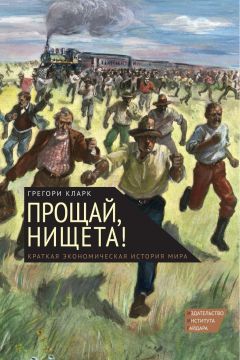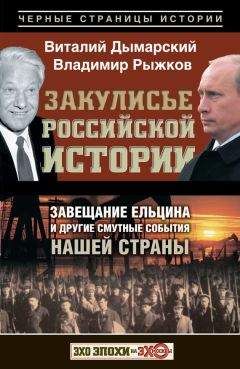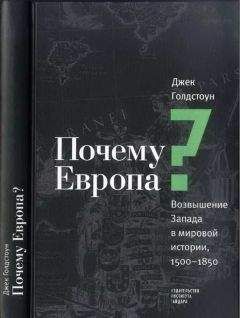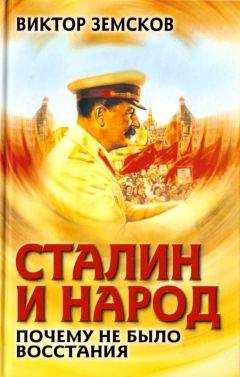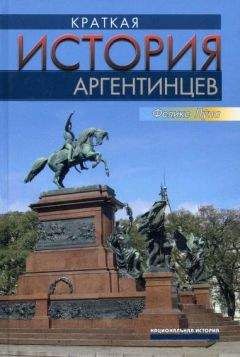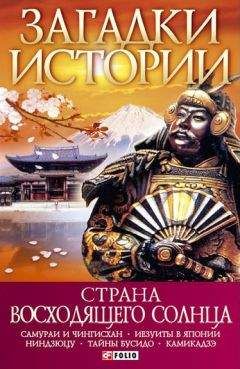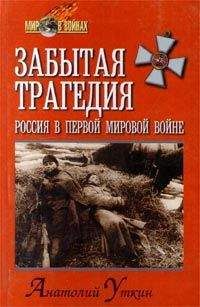Грегори Кларк - Прощай, нищета! Краткая экономическая история мира
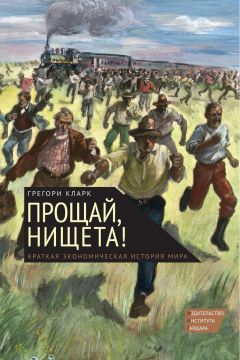
Скачивание начинается... Если скачивание не началось автоматически, пожалуйста нажмите на эту ссылку.
Жалоба
Напишите нам, и мы в срочном порядке примем меры.
Описание книги "Прощай, нищета! Краткая экономическая история мира"
Описание и краткое содержание "Прощай, нищета! Краткая экономическая история мира" читать бесплатно онлайн.
Почему одни страны так богаты, а другие так бедны? Почему промышленная революция — и беспрецедентный экономический рост, который начался вместе с ней, — произошла в Англии в конце XVIII века, а не в каком-то другом месте или в какое-то другое время? Почему индустриализация не сделала весь мир богатым — и почему она сделала многие страны еще беднее? В своей книге "Прощай, нищета!" Грегори Кларк рассматривает эти непростые вопросы и предлагает новый взгляд, в соответствии с которым культура, а не эксплуатация, география или ресурсы, объясняет богатство и бедность народов. Эта книга, бросающая блестящий и трезвый вызов идее, что бедные общества могут стать экономически развитыми благодаря внешнему вмешательству, способна изменить наше понимание мировой экономической истории.
— 1996. «The Political Foundations of Modern Economic Growth: England, 1540–1800». Journal of Interdisciplinary History 26: 563–588.
— 1998. «Land Hunger: Land as a Commodity and as a Status Good in England, 1500–1910». Explorations in Economic History 35 (1): 59–82.
— 2001a. «Markets and Economic Growth: The Grain Market of Medieval England». Working Paper, University of California, Davis.
— 2001b. «Farm Wages and Living Standards in the Industrial Revolution: England, 1670–1869». Economic History Review 54 (3): 477–505.
— 2002a. «Farmland Rental Values and Agrarian History: England, 1500–1912». European Review of Economic History 6 (3): 281–309.
— 2002b. «The Agricultural Revolution? England, 1500–1912». Working Paper, University of California, Davis.
— 2003. «Agricultural Wages». In The Oxford Encylopedia of Economic History, Vol. 1, ed. Joel Mokyr. Oxford: Oxford University Press, pp. 59–65.
— 2005. «The Condition of the Working-Class in England, 1209–2004». Journal of Political Economy 113 (6): 1307–1340.
— 2007а. «Farm Wages, Population and Economic Growth, England, 1209–1869». Economic History Review 60 (1): 97-135.
— 2007b. «The Economic Aggregates for England, 1209–1869». Working Paper, University of California, Davis.
Clark, Gregory, and Gillian Hamilton. 2006. «Survival of the Richest: The Malthusian Method in England, 1585–1638». Journal of Economic History 66 (3): 707–736.
Clark, Gregory, and David Jacks. 2007. «Coal and the Industrial Revolution». European Review of Economic History 11 (1).
Clark, Gregory, and Patricia Levin. 2001. «How Different Was the Industrial Revolution? The Revolution in Printing, 1350–1869». Working Paper, University of California, Davis.
Clark, Gregory, and Alan McGinley. 1989. «Selective Pressure and Economic History: Economics in the Very Long Run». Paper presented to the Berkeley-Stanford Economic History Seminar, May 25.
Clark, Gregory, and Ysbrand van der Werf. 1998. «Work in Progress? The Industrious Revoiution». Journal of Economic History 58 (3): 830–843.
Clark, Gregory, Michael Huberman, and Peter Lindert. 1995. «A British Food Puzzle, 1770–1850». Economic History Review 48 (2): 215–237.
Clark, W. A. Graham. 1907. The Cotton Industry of British India and the Philippines. Washington, D.C.: U.S. Government Printing Office.
Cockburn, J.S. 1977. «The Nature and Incidence of Crime in England, 1559–1625: A Preliminary Survey». In Crime in England, 1550–1800, ed. J.S. Cockburn. Princeton, N.J.: Princeton University Press, pp. 49–71.
— 1991. «Patterns of Violence in English Society: Homicide in Kent 1560–1985». Past and Present 130: 70-106.
Cohen, Mark Nathan. 1977. The Food Crisis in Pre-History. New Haven, Conn.: Yale University Press.
Condorcet, Jean-Antoine-Nicolas, Marquis de. 1795. Esquisse dun tableau historique des progres de I'esprit humain (Sketch for a Historical Picture of the Progress of the Human Mind). Paris: Agasse.
Cotton Spinning Productivity Team. 1951. Cotton Spinning. London: Anglo-American Council on Productivity.
Cotton Yarn Association. 1929. «Statistics Concerning Cotton Spinning in India». Journal of the Textile Institute. Transactions 20: T10 — T20.
Cousin, Victor. 1854. Lectures on the True, the Beautiful, and the Good. New York: D.Appleton.
Crawcour, Sidney. 1961. «The Development of a Credit System in Seventeenth-Century Jарап». Journal of Economic History 21: 342–360.
Cressy, David. 1980. Literacy and the Social Order: Reading and Writing in Tudor and Stuart England. Cambridge, U.K.: Cambridge University Press.
Cronk, Lee. 1991. «Wealth, Status, and Reproductive Success among the Mukogodo of Кепуа». American Anthropologist 93: 345–360.
Curtin, Philip D. 1989. Death by Migration: Europe's Encounter with the Tropical World in the Nineteenth Century. Cambridge, U.K.: Cambridge University Press.
Darwin, Charles. 1859. On the Origin of Species. London: John Murray.
— 1965. The Voyage of the Beagle. London: J. M. Dent and Sons.
— 1969. Autobiography. In The Autobiography of Charles Darwin, 1809–1882: With Original Omissions Restored, ed. Nora Barlow. New York: W.W. Norton, pp. 17-146.
— 1998. The Descent of Man. Amherst, N.Y.: Prometheus.
Davis, Lance E., and Robert A. Huttenback. 1986. Mammon and the Pursuit of Empire: the Economics of British Imperialism. Cambridge, U.K.: Cambridge University Press.
Deane, Phyllis, and W.A. Cole. 1967. British Economic Growth, 1688–1959, 2nd ed. Cambridge, U.K.: Cambridge University Press.
Deaux, George. 1969. The Black Death. London: Hamilton.
Deshpande, S. R. 1946. Report on an Enquiry into Conditions of Labour in the Cotton Mill Industry in India. Simla: Government of India Press.
De Vries, Jan. 1984. European Urbanization, 1500–1800. London: Methuen.
— 1985. «The Population and Economy of the Pre-Industrial Netherlands». Journal of Interdisciplinary History 15 (4): 661–682.
— 1994. «The Industrial Revolution and the Industrious Revolution». Journal of Economic History 54: 249–270.
De Vries, Jan, and Ad van der Woude. 1997. The First Modern Economy: Success, Failure, and Perseverance of the Dutch Economy, 1500–1815. Cambridge, U.K.: Cambridge University Press.
De Wever, F. 1978. «Rents and Selling Prices of Land at Zele, Sixteenth to Eighteenth Century». In The Agricultural Development of the Low Countries as Revealed by the Tithe and Rent Statistics, 1250–1800, eds. Herman van der Wee and E. van Cauwenbere. Leuven: Leuven University Press, pp. 1-23.
Diamond, Jared M. 1987. «The Worst Mistake in the History of the Human Race». Discover, May, pp. 64–66.
— 1997. Chins, Germs, and Steel: The Fates of Human Societies. New York: W.W. Norton.
Dickmann, Nicola. 2003. «Fertility and Family Income on the Move: An International Comparison over 20 Years». Working Paper 360, Maxwell School of Citizenship and Public Affairs, Syracuse University.
Divekar, V. D. 1989. Prices and Wages in Thine Region in a Period of Transition, 1805–1830 AD. Pune: Gokhale Institute of Politics and Economics.
Doraiswamy, Indra. 1983. «Scope for Increasing Productivity in Spinning Mills». In Resume of Papers, Twenty-Fourth Technological Conference. Ahmedabad Textile Research Association, Bombay Textile Research Association, Northern India Textile Reseach Association, South India Textile Research Association. Coimbatore: SITRA.
Dore, Ronald P. 1965. Education in Tokugawa Japan. Berkeley: University of California Press.
Dove, Michael R. 1984. «The Chayanov Slope in a Swidden Society». In Chayanov, Peasants and Economic Anthropology, ed. E. Paul Durrenberger. Orlando, Fla.: Academic Press, pp. 97-132.
Duncan-Jones, Richard. 1990. Structure and Scale in the Roman Economy. Cambridge, U.K.: Cambridge University Press.
Durand, John. 1977. «Historical Estimates of World Population: An Evaluations». Population and Development Review 3 (3): 253–296.
Dutta, Pratap C. 1984. «Biological Anthropology of Bronze Age Harappans: New Perspectives». In The People of South Asia: The Biological Anthropology of India, Pakistan, and Nepal, ed. John R. Lukacs. New York: Plenum Press, pp. 59–76.
Dyer, Christopher. 1988. «Changes in Diet in the Late Middle Ages: The Case of Harvest Workers. Agricultural History Review 36 (1): 21–37.
Easterlin, Richard A. 1974. «Does Economic Growth Improve the Human Lot? Some Empirical Evidenc». In Nations and Households in Economic Growth: Essays in Honour of Moses Abramowitz, ed. Paul A. David and Melvin W. Reder. New York: Academic Press.
— 2003. «Explaining Happiness». Proceedings of the National Academy of Sciences of the United States of America 100 (19): 11 176-11 183.
Easterly, William. 2001. The Elusive Quest for Growth: Economists' Adventures and Misadventures in the Tropics. Cambridge, Mass.: MIT Press.
— 2006. The White Man'"s Burden: Why the West's Efforts to Aid the Rest Have Done So Much III and So Little Good. New York: Penguin.
Easterly, William, and Ross Levine. 2001. «It's Not Factor Accumulation: Stylized Facts and Growth Models». World Bank Economic Review 15 (2): 177–220.
Edelstein, Michael. 1982. Overseas Investment in the Age of High Imperialism. The United Kingdom, 1850–1914. New York: Columbia University Press.
Eden, Frederick M. 1797. The State of the Poor. London: J. Davis.
Eichengreen, Barry. 1984. «Mortgage Interest Rates in the PopulistEra». American Economic Review 74 (5): 995-1015 Eltis, David. 1982. «Nutritional Trends in Africa and the Americas: Heights of Africans, 1819–1839». Journal of Interdisciplinary History 12: 453–475.
Emmison, F.G. 2000. Essex Wills, Vol.12. Chelmsford: Essex Record Office.
Engerman, Stanley L., and Kenneth Sokoloff. 2002. «Factor Endowments, Inequality, and Paths of Development among New World Economics». Working Paper 9259. Cambridge, Mass.: National Bureau of Economic Research.
Epstein, S. R. 1998. «Craft Guilds, Apprenticeship, and Technological Change in Preindustrial Europe». Journal of Economic History 58 (3): 684–713.
Evans, Nesta. 1987. The Wills of the Archdeaconry of Sudbury, 1630-35. Suffolk Records Society, Vol.29. Woodbridge, Suffolk: Boydell Press.
— 1993. The Wills of the Archdeaconry of Sudbury, 1636-38. Suffolk Records Society, Vol. 35. Woodbridge, Suffolk: Boydell Press.
Everett, Daniel. 2005. «Interview». Your Manchester, May, pp. 10–11.
Farber, Howard. 1978. «A Price and Wage Study for Northern Babylonia during the Old Babylonian Period». Journal of the Economic and Social History of the Orient 21: 1-51.
Farris, William Wayne. 2006. Japan's Medieval Population: Famine, Fertility, and Warfare in a Transformative Age. Honolulu: University of Hawaii Press.
Federico, Giovanni, and Paolo Malanima. 2004. «Progress, Decline, Growth: Product and Productivity in Italian Agriculture, 1000–2000». Economic History Review 57 (3): 437–464.
Feinstein, Charles. 1972. National Income, Expenditures and Output of the U. K., 1855–1965. Cambridge, U.K.: Cambridge University Press.
— 1998. «Pessimism Perpetuated: Real Wages and the Standard of Living in Britain during and after the Industrial Revolution». Journal of Economic History 58 (3): 625–658.
Feng, Wang, James Lee, and Cameron Campbell. 1995. «Marital Fertility Control among the Qing Nobility: Implications for Two Types of Preventive Check». Population Studies 49: 383–400.
Feuerwerker, Albert. 1984. «The State and Economy in Late Imperial China». Theory and Society 13 (3): 297–326.
Fielding, Henry. 1731. The Tragedy of Tragedies, or, The Life and Death of Tom Thumb the Great. London; J. Roberts.
Filmer, Sir Robert. 1653. An Advertisement to the Jurymen of England. Together with A Difference between an English and Hebrew Witch. London: Richard Royston.
Finlay, Robert. 1992. «Portuguese and Chinese Maritime Imperialism: Camoes's Lusiads and Luo Maodeng's Voyage of the San Bao Eunuch». Comparative Studies in Society and History 34 (2): 225–241.
Fitton, R.S. 1989. The Arkwrights: Spinners of Fortune. Manchester: Manchester University Press. Flinn, Michael W. 1981. The European Demographic System: 1500–1820. Baltimore: Johns Hopkins University Press.
Fogel, Robert W, and Stanley Engerman. 1974. Time on the Cross: The Economics of American Negro Slavery. Boston: Little, Brown.
Frank, Robert H. 1999. Luxury Fever: Why Money Fails to Satisfy in an Era of Excess. New York: Free Press.
Frey, Bruno S., and Alois Stutzer. 2002. «What Can Economists Learn from Happiness Research?» Journal of Economic Literature 40 (2): 402–435.
Galley, Chris. 1995. «A Model of Early Modern Urban Demography». Economic History Review 48 (3): 448–469.
Gallup, John Luke, and Jeffrey D.Sachs. 2000. Agriculture, Climate, and Technology: Why Are the Tropics Falling Behind?» American Journal of Agricultural Economics 82 (3): 731–737.
Galor, Oded, and Omer Moav. 2002. «Natural Selection and the Origin of Economic Growth». Quarterly Journal of Economics 117: 1133–1191.
Galor, Oded, and David N. Weil. 2000. «Population, Technology and Growth: From Malthusian Stagnation to the Demographic Transition and Beyond». American Economic Review 90: 806–828.
Gardner, Jonathan, and Andrew J. Oswald. 2007. «Мопеу and Mental Well-being: A Longitudinal Study of Medium-Sized Lottery Wins». Journal of Health Economics 26 (1): 49–60.
Garrett, Eilidh, Alice Read, Kevin Schurer, and Simon Szreter. 2001. Changing Family Size in England and Wales: Place, Class and Demography, 1891–1911. Cambridge, U.K.: Cambridge University Press.
Gat, Azar. 2002. «Why City-States Existed? Riddles and Clues of Urbanization and Fortifications». In A Comparative Study of Six City-State Cultures, ed. Morgens H.Hansen. Copenhagen: Danish Royal Academy, pp. 125–138.
Geary, Frank, and Tom Stark. 2004. «Trends in Real Wages during the Industrial Revolution: A View from Across the Irish Sea». Economic History Review 57: 362–395.
Ghersa, С. M., M. L. Roush, S. R. Radosevich, and S. M. Cordray. 1994. «Coevo-lution of Agrosystems and Weed Management". Bioscience 44 (2): 85–94.
Given, James B. 1977. Society and Homicide in Thirteenth Century England. Stanford, Calif.: Stanford University Press.
Godwin, William. 1793. Enquiry Concerning Political Justice, and Its Influence on Modern Morals and Happiness. London: J. Robinson.
Goldstone, Jack A. 1987. «Cultural Orthodoxy, Risk, and Innovation: The Divergence of East and West in the Early Modern World». Sociological Theory 5 (2): 119–135.
Gordon, Peter. 2004. «NumericaI Cognition without Words: Evidence from Amazonia». Science 306: 496–499.
Government of India, Ministry of Labour. 1954. Report on Intensive Survey of Agricultural Labour, Volume 1: All India. New Delhi.
Government of India, Ministry of Statistics and Programme Implementation. 2004. Housing Stock and Constructions (July-December 2002). New Delhi.
Gransden, Antonia. 1964. The Chronicle of Bury St. Edmunds, 1212–1301. London: Nelson.
Greif, Avner. 2006. Institutions and the Path to the Modern Economy: Lessons from Medieval Trade. Cambridge, U. K.: Cambridge University Press.
Griliches, Zvi. 1996. «The Discovery of the Residual: A Historical Note». Journal of Economic Literature 34 (3): 1324–1330.
Gross, Daniel R. 1984. «Time Allocation: A Tool for the Study of Cultural Behavior». Annual Review of Anthropology 13: 519–558.
Guilaine, Jean, and Jean Zammit. 2005. The Origins of War: Violence in Pre-History. Oxford: Blackwell.
Guppy, H.B. 1886. «On the Physical Characters of the Solomon Islanders». Journal of the Anthropological Institute of Great Britain and Ireland 15: 266–285.
Hadeishi, Hajime. 2003. «Economic Weil-Being and Fertility in France: Nuits, 1744–1792». Journal of Economic History 63 (2): 489–505.
Подписывайтесь на наши страницы в социальных сетях.
Будьте в курсе последних книжных новинок, комментируйте, обсуждайте. Мы ждём Вас!
Похожие книги на "Прощай, нищета! Краткая экономическая история мира"
Книги похожие на "Прощай, нищета! Краткая экономическая история мира" читать онлайн или скачать бесплатно полные версии.
Мы рекомендуем Вам зарегистрироваться либо войти на сайт под своим именем.
Отзывы о "Грегори Кларк - Прощай, нищета! Краткая экономическая история мира"
Отзывы читателей о книге "Прощай, нищета! Краткая экономическая история мира", комментарии и мнения людей о произведении.





